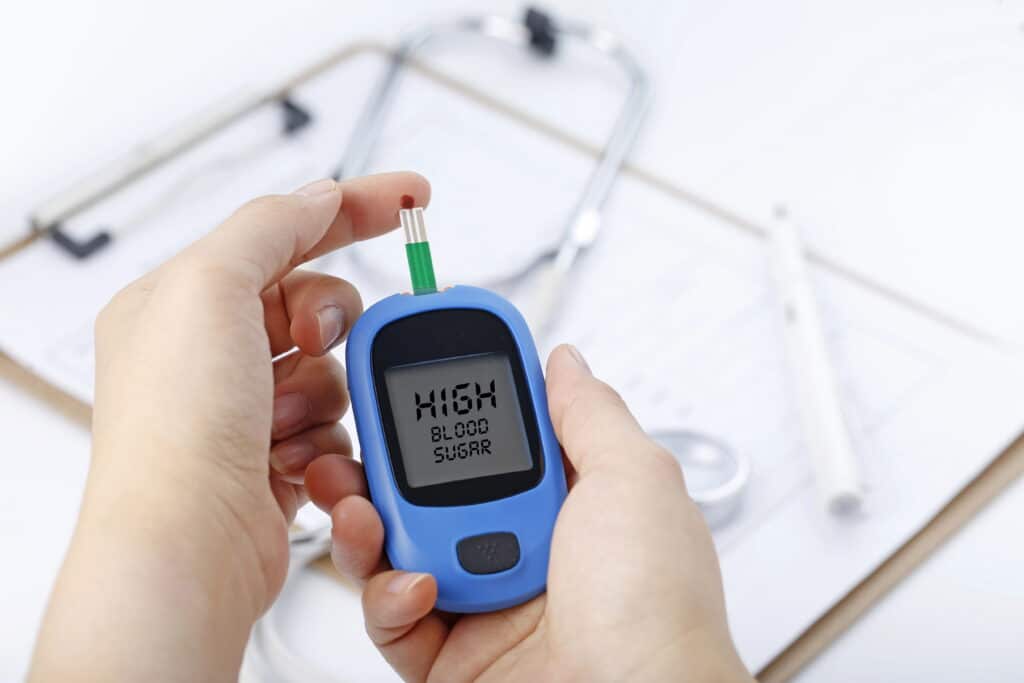Managing Diabetes During the Summer: Tips from GMC Endocrinologists
As temperatures rise in Dubai, managing chronic conditions like diabetes becomes more challenging. The heat can affect blood sugar levels, hydration, insulin absorption, and overall energy. At German Medical Center, our endocrinologists in Dubai provide expert guidance to help individuals with diabetes navigate the summer months safely and effectively.
Whether you’re spending time outdoors or adjusting your daily routine during the hot season, these practical tips from our specialists can help you stay in control of your health.
How Summer Heat Affects Diabetes
Living with diabetes means your body already has a harder time managing glucose levels. Combine that with extreme summer heat, and several complications can arise:
- Dehydration: Heat increases sweating, which can lead to fluid loss and higher blood sugar levels.
- Heat & Insulin: High temperatures can affect insulin potency, especially if it’s not stored properly.
- Low Blood Sugar: Activities like walking or swimming can lower your glucose unexpectedly.
- Skin Issues: Heat rashes or blisters are more common in diabetic patients due to reduced skin sensitivity.
Tips from GMC Endocrinologists in Dubai
Our endocrinologist in Dubai team at German Medical Center shares the following recommendations:
1. Stay Hydrated Consistently
Drink plenty of water throughout the day—even if you don’t feel thirsty. Dehydration can raise blood sugar levels and increase the risk of heat stroke.
Tip: Avoid sugary drinks or fruit juices, which may spike your glucose unexpectedly.
2. Monitor Blood Sugar More Frequently
Heat can make your blood sugar less predictable. It’s essential to test your levels more often, especially if you’re active or outdoors for extended periods.
Advice from our endocrinologist in Dubai: Keep your glucose monitor and strips in a cool, dry place to maintain accuracy.
3. Protect Your Insulin & Diabetes Supplies
Extreme heat can reduce insulin effectiveness. Never leave your insulin in a car or direct sunlight. Use insulated travel packs when carrying it around.
For patients using continuous glucose monitors (CGMs) or insulin pumps, consult your diabetes specialist in Dubai to ensure proper heat protection and usage.
4. Wear Light, Breathable Clothing
Opt for cotton or moisture-wicking fabrics. This helps reduce skin irritation and heat rashes, which are common in people with diabetes during hot weather.
5. Adjust Physical Activity Timing
Exercise is crucial for managing diabetes, but avoid outdoor workouts during peak sunlight hours (12 PM to 4 PM). Early morning or evening is the best time for walks or mild exercises.
For custom exercise plans, you can book a consultation with a diabetes doctor in Dubai at our clinic.
6. Watch for Warning Signs
Symptoms like dizziness, sweating, rapid heartbeat, or confusion can indicate high or low blood sugar. Always carry fast-acting carbs (like glucose tablets) and a water bottle when you’re out.
If symptoms persist, visit our diabetes clinic in Dubai for immediate care.

Why Choose German Medical Center?
At German Medical Center, our experienced endocrinologists in Dubai offer tailored care for patients managing type 1, type 2, and gestational diabetes. With advanced diagnostics and patient-focused treatment, we provide:
- Comprehensive diabetic assessments
- Individualized meal and medication plans
- Ongoing monitoring and education
- Insulin therapy and CGM setup
Our diabetes clinic in Dubai is designed to support you year-round, especially during the demanding summer months when health risks increase.
Book an appointment today with our board-certified endocrinologists and take control of your diabetes with confidence.
Conclusion
Managing diabetes during the summer requires a proactive approach. From staying hydrated to checking blood sugar regularly, small changes can lead to big improvements. With expert advice from a trusted endocrinologist in Dubai, you can enjoy a safer, healthier season.
At German Medical Center, we’re committed to helping you live better with diabetes—every season of the year.










